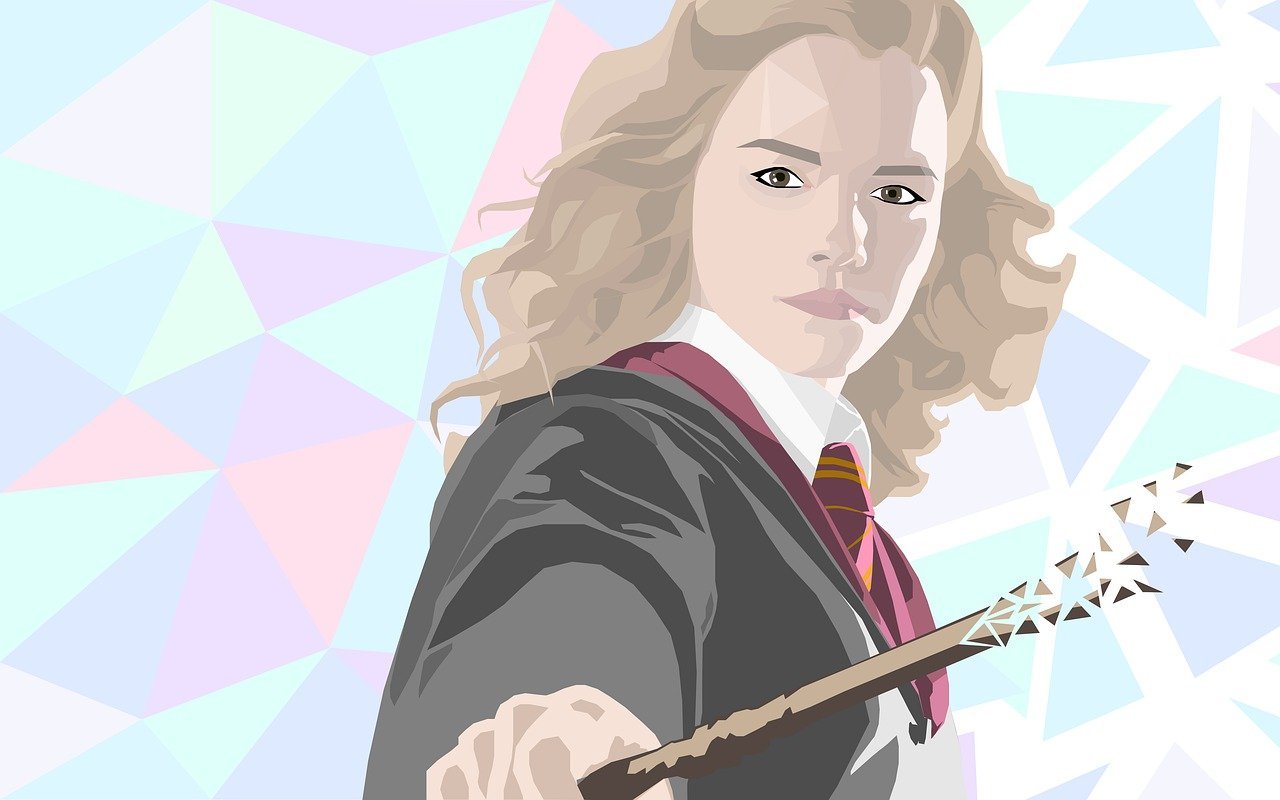Why Hogwarts Legacy is Canon
As the hottest thing to come out of the Wizarding World entertainment franchise lately, a lot of people are wondering – is Hogwarts Legacy canon?
While we’re going to get to answering that question in a second, it’s worth noting that people have had all too much trouble deciding whether or not Hogwarts Legacy is actually canon to the Harry Potter/Wizarding World universe.
We’re here to answer that question once and for all: Hogwarts Legacy is most certainly canon. However, that doesn’t actually matter all that much.
Let’s explain.
Hogwarts Legacy is canon, but it doesn’t actually reveal anything all that new
We’ll get into why Hogwarts Legacy is canon in a moment, but to start, it’s worth noting that the events of Hogwarts Legacy don’t actually impact the world of Harry Potter as we know it very much. Unlike the Fantastic Beasts film franchise that do change and revise things that we had known about the Wizarding World, Hogwarts Legacy really is more of an anectdotal story. Nothing in it really impacts the Wizarding World, other than it brings the idea of ancient magic to the foreground.
What is ancient magic?
Ancient magic is not a new concept introduced in Hogwarts Legacy, despite how it might at first seem. In the main Harry Potter series, the story originates with ancient magic. Ancient magic is the very thing that makes it possible for Harry Potter to survive the killing curse performed by Voldemort when Harry Potter was just a baby.
Ancient magic isn’t only mentioned in the first book, however. It’s a constant theme throughout. And it’s so powerful that only one act of it is enough to be the thread that winds its way through all seven books. Lily’s sacrifice did not only protect Harry from Voldemort before his rebirth – it also lived on in Voldemort and continued to protect Harry from him to the end.
Ancient magic, therefore, although not often talked about, is prevalent throughout the Harry Potter stories.
Hogwarts Legacy does build on ancient magic
Perhaps the only difference between the Wizarding World we know and that of Hogwarts Legacy is that in Hogwarts Legacy, the main character is actually able to see ancient magic. However, that is not so much a departure as it is a unique trait or power specific to a few wizards. And the world of Harry Potter is full of wizards and witches with unique gifts. For example, Harry Potter can talk to snakes. That’s a pretty cool unique gift. Other wizards and witches have the ability to see into the future. The only thing really that Hogwarts Legacy adds here is that there are some witches and wizards who can actually see traces of ancient magic and more directly tap into its power.
Goblin rebellions are canon
Another interesting piece of tie-in with the Harry Potter wizarding world is that Hogwarts Legacy includes the depiction of an actual Goblin rebellion – something we’ve only ever heard alluded to but not actually experienced before. Goblins are, after all, incredibly intelligent creatures capable of performing magic and not very happy about their role as second-class citizens to Wizards.
As far as we know, the Goblin rebellion we see in Hogwarts Legacy is the last of many Goblin rebellions. And while this flows well with what we already know of magical world history and canon, the fact that there was a goblin rebellion in the late 1800s does not impact the main Harry Potter film franchise/books in any way – we already know that there were plenty of Goblin rebellions throughout history. One more tacked on doesn’t change things in any significant way.
What does “canon” even mean?
I think the major issue people have with deciding whether or not Hogwarts Legacy is canon lies in an uncomfortable vagueness of what canon in fiction actually means. This, of course, is made even more vague by just how many different forms of media are now available. Harry Potter is available in many forms including books, films, and video games. But even between the films and books, much is different.
And then there is the fact that Rowling herself likes to add things into her stories when those things are not even necessarily represented in the stories themselves. Indeed, Harry Potter has what you might call “a canon problem.”
However, Hogwarts Legacy is no mere fanfic or fan-made game. It is an official part of the Wizarding World franchise. Surely that counts for something in establishing itself as at least canon to the Wizarding World.
The game’s events do not impact Harry Potter’s story
While thinking about whether or not things are canon, you might consider how much the story actually impacts the Wizarding World to decide your answer. I would argue that Hogwarts Legacy is definitely canon to the Wizarding World at large, and likely to remain so given its success. It will likely become a firm fixture in a still struggling to grow expanded universe.
Does the fact that it’s central story doesn’t directly impact Harry Potter and his friends mean its not canon? If that were the case, then anything that has happened throughout wizard history – if it does not directly impact Harry Potter and his friends – also wouldn’t be canon. It certainly seems likely that lots of things happened throughout history without it impacting Harry’s story, so why couldn’t Hogwarts Legacy’s story be simply one of those things?
The Wizarding World basically says Hogwarts Legacy is canon
There has not been an official announcement about whether or not Hogwarts Legacy is canon in so many explicit words. However, Portkey Games – the official game label for the Wizarding World franchise and publisher of Hogwarts Legacy – basically says that the game is canon, and firmly rooted in J.K. Rowling’s imaginative world. Their words exactly are:
“While Portkey Games are not direct adaptations of the books and films, the games are firmly rooted in the magical universe of the Wizarding World. While remaining true to J.K. Rowling’s original vision, Portkey game developers chart new territory by creating fresh ways for fans to immerse themselves in the Wizarding World.”
“Firmly rooted in the magical universe of the Wizarding World” must mean that these games are canon, and part of the official, extended Wizarding World of Harry Potter.
Fans need to change how they think of Harry Potter canon
It’s quite clear that Harry Potter is attempting to become less of a hit movie franchise and more of its own extended world, much the way Marvel has successfully (or not so successfully) done. When we think of Harry Potter and the Wizarding World in this way, it becomes clear that our stranglehold on what is and isn’t canon needs to loosen. There are going to be many, many tails that lie outside the realm of Harry’s story and as long as things don’t directly contradict the stories of Harry Potter (Hogwarts Legacy doesn’t and it wasn’t created in tandem with Rowling while Fantastic Beasts does and was), we should all gladly put our hands together and applaud the ever growing stories around what was and will be one of the most defining popular stories of our time.
Rowling is unlikely to be involved in every single Wizarding World production
For whatever reason, Rowling was supposedly not involved in the creation of the Hogwarts Legacy. That can be a little problematic in trying to validate that Hogwarts Legacy is in fact canon. However, as time goes on, and more and more Harry Potter works are created in different formats, it is unlikely that Rowling herself will be involved in every single one of them. That being said, her team was involved in the project, and the game itself was entirely based on the Wizarding World she created. In the words of the game creators:
“J.K. Rowling was not involved in the creation of the game, but as creator of the wizarding world and one of the world’s greatest storytellers, her extraordinary body of writing is the foundation of all projects in the Wizarding World. This is not a new story from J.K. Rowling, however we have collaborated closely with her team on all aspects of the game to ensure it remains in line with the magical experiences fans expect.”
In many ways, the Wizarding World has outgrown its creator. It was so definitive and so popular that it’s become something beyond her, something alive in the minds an imaginations of the kids that read the books in the 90s and 2000s and now their kids, and eventually their kid’s kids. Whether or not Rowling herself created Hogwarts Legacy shouldn’t matter so much. What should matter more is whether or not the story fits with the story, the themes, and the history of a fantasy world that is likely to only grow, not diminish, overtime.











